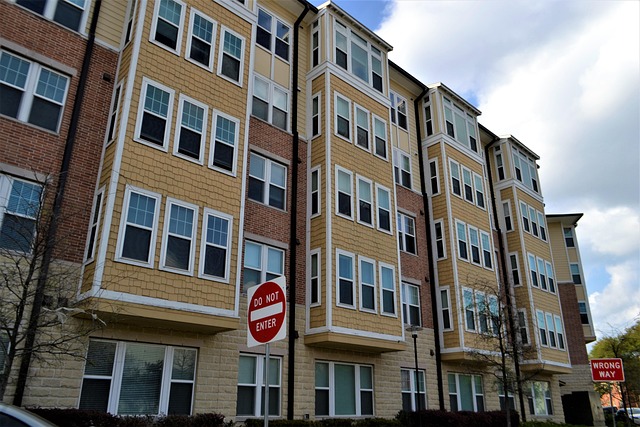Tenant background checks are a critical aspect of rental management, offering landlords detailed insights into potential tenants' reliability through verification of criminal records, rental history, and financial stability. In the digital age, these checks have become essential tools for creating secure living environments by identifying red flags like late payments or evictions. While they empower landlords, strict policies may unfairly restrict access to housing for financially challenged individuals. Landlords must balance risk assessment with fairness, adhering to laws like the Fair Housing Act and ensuring tenant privacy during the process.
“Uncovering the intricate relationship between tenant background checks and rental availability, this article offers a comprehensive guide. While background checks serve as a vital tool for landlords to ensure safe rental spaces, their impact on accessibility is multifaceted. We explore the pros and cons, delving into legal aspects under the Fair Housing Act.
From understanding the process to best practices, this overview equips readers with knowledge on tenant background checks, crucial for navigating today’s rental landscape.”
- Understanding Tenant Background Checks: A Comprehensive Overview
- The Role of Background Checks in Ensuring Rental Safety
- Impact on Rental Availability: Pros and Cons
- Legal Implications and Fair Housing Act Considerations
- Best Practices for Conducting and Utilizing Background Checks
Understanding Tenant Background Checks: A Comprehensive Overview

Tenant background checks are a crucial aspect of the rental process, designed to assess potential renters’ creditworthiness and past behavior. These checks go beyond verifying basic information like employment and income, delving into a tenant’s history to ensure they are a reliable choice for landlords. By examining factors such as criminal records, rental history, and financial stability, background checks provide valuable insights into an applicant’s character.
Comprehensive tenant background checks involve rigorous data verification, often including cross-referencing multiple databases. This process helps identify red flags that may indicate future rental issues, such as late payments, evictions, or outstanding legal matters. While it might seem like a stringent procedure, these checks ultimately aim to protect both tenants and landlords, fostering a fair and secure rental environment.
The Role of Background Checks in Ensuring Rental Safety

In today’s digital era, tenant background checks have become an indispensable tool for landlords and property managers looking to ensure rental safety. With a simple process that involves verifying identification, criminal history, and previous housing records, these checks provide invaluable insights into potential tenants’ backgrounds. By identifying red flags such as outstanding warrants, previous evictions, or fraudulent information, landlords can make informed decisions and mitigate risks associated with renting their properties.
The benefits of tenant background checks extend beyond simply avoiding problematic tenants. They foster a sense of security for both the landlord and current residents, promoting a harmonious living environment. By ensuring that only reliable and responsible individuals become tenants, landlords can enhance property values and maintain a positive reputation in the rental market. This proactive approach not only protects investments but also contributes to building a safer and more stable community.
Impact on Rental Availability: Pros and Cons

Tenant background checks play a pivotal role in shaping rental availability and market dynamics. On one hand, these checks offer significant advantages to landlords and property managers. They provide valuable insights into a prospective tenant’s financial stability, criminal history, and previous rental behavior, enabling informed decisions about who can occupy their properties. This process helps maintain the quality of tenant-landlord relationships and minimizes potential risks like non-payment of rent or property damage.
However, there are also potential drawbacks to consider. Strict background check policies may inadvertently limit access to housing for individuals with no criminal record but challenging financial backgrounds. This can disproportionately affect certain demographics, such as first-time renters or those rebuilding their credit. Balancing the need for responsible renting practices and ensuring fair housing opportunities remains a delicate act that requires careful consideration of both tenant rights and landlord concerns.
Legal Implications and Fair Housing Act Considerations

The implementation of tenant background checks is a delicate matter, with significant legal implications and fair housing act considerations. Landlords must navigate a complex web of regulations to ensure compliance while maintaining a safe and trustworthy rental environment. One key aspect is understanding the Fair Housing Act (FHA), which prohibits discrimination in housing-related activities, including the use of background checks. The FHA ensures that these checks are applied fairly across all applicants, without bias based on race, religion, national origin, gender, or disability status.
Landlords must be mindful of their practices to avoid any potential legal repercussions. This includes ensuring that background check procedures are uniformly applied and based solely on relevant factors related to the rental property’s safety and security. Any deviation from these standards could lead to complaints and lawsuits, underscoring the importance of carefully considering and documenting the rationale behind using tenant background checks.
Best Practices for Conducting and Utilizing Background Checks

Conducting and utilizing tenant background checks is a critical aspect of responsible property management. Best practices involve starting with a comprehensive list of relevant information to verify, including criminal history, employment records, and previous rental references. It’s important to ensure that these checks are conducted in accordance with local laws and regulations to protect both the landlord and potential tenants from unfair or discriminatory practices.
When using tenant background checks, focus on balancing risk assessment with fairness. Consider the nature and severity of any discrepancies found, as well as contextual factors that might mitigate them. For instance, a minor infraction should be viewed differently than a violent crime. Additionally, ensure that all information is accurately documented and used solely for the purpose of evaluating rental eligibility, preserving tenant privacy, and adhering to data protection guidelines.






